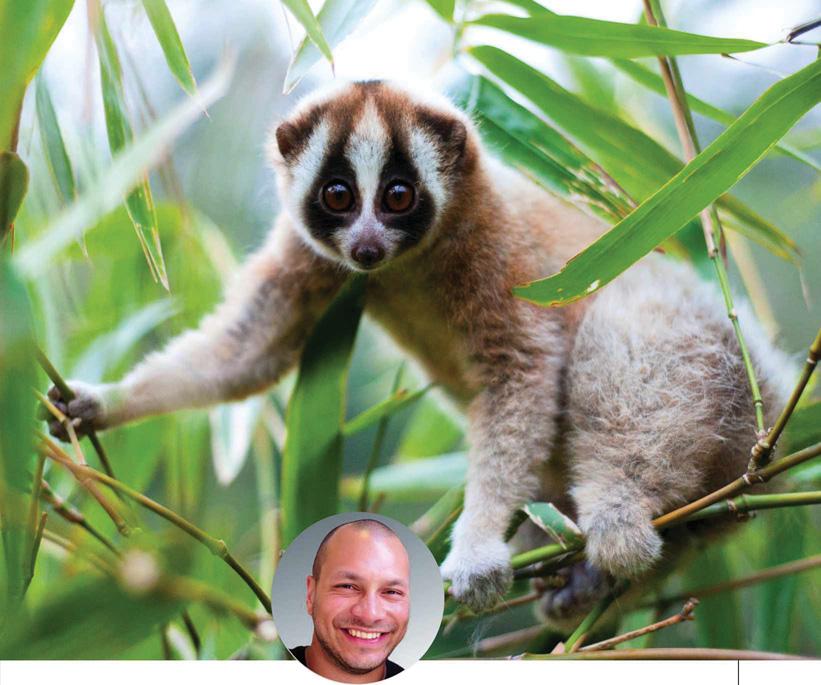
WHEN ASKED TO NAME substances that cause sickness or death, many people would mention. poisons that are harmful to humans - chemical elements such as arsenic, plants such as hemlock, or death cap mushrooms. In fact, nearly every major group of organisms makes natural poisons, which come in two flavours: toxin and venom.
What's the difference between a toxin and a venom?
They're distinguished by delivery route. A toxin passively enters a recipient's body after being swallowed, inhaled or absorbed through contact. By contrast, a venom is actively delivered into a victim via a bite, spray, stab or sting. But you can't simply. say that toxins are ingested and venoms are injected. When the toxin tetrodotoxin is delivered through the bite of a blue-ringed octopus, it's then technically venom! The two poisons also differ by function.
Toxins are typically used for defence, to deter predators or competitors, venoms are used for offence, to catch prey. They have different compositions, too. A toxin is typically a single molecule and a venom is a mixture that will include toxins. Marine cone-snail venoms can contain over 100 distinct toxins to target a variety of prey.
Where do they come from?
This story is from the July 2023 edition of BBC Wildlife.
Start your 7-day Magzter GOLD free trial to access thousands of curated premium stories, and 9,000+ magazines and newspapers.
Already a subscriber ? Sign In
This story is from the July 2023 edition of BBC Wildlife.
Start your 7-day Magzter GOLD free trial to access thousands of curated premium stories, and 9,000+ magazines and newspapers.
Already a subscriber? Sign In

Jump Around - Bagheera Kiplingi - The acrobatic spider with a predilection for veggie food
Spiders eat flies, right? everyone knows that the 45,000 or so spiders in the world are all obligate carnivores, more or less – eating other animals, mainly invertebrates. Nature, however, loves an exception, and one particular spider missed out on that ecological memo. It goes by the wonderful scientific name of Bagheera kiplingi, and its claim to fame is that its diet is – at least mostly – vegetarian.

Female of the Species - Zebras - A strong sisterhood is key to staying safe
Zebras are masters of confusion. Their collective noun is ‘a dazzle’, which is fitting since their bodies and behaviour have been surprising scientists for centuries.

See It, Save It? - Wildlife tourism can be a powerful ally in protecting nature - but it can also harm it. We weigh up the pros and cons.
The sums of wildlife travel aren’t as simple as more tourists equals happier nature. How much did my visit really contribute to the conservation of Lady Liuwa and her habitat – and was that outweighed by carbon emissions from my flights? Did my presence disturb the animals’ natural behaviour more than it reduced the threat of poaching or benefited local communities?The question of whether wildlife travel is, on balance, good for wildlife is a complex one – and there’s no simple answer.

Can Your Really Offset Emissions? - Planning an overseas wildlife-watching trip entails facing some inconvenient truths
Imagine (or maybe you don't need to) that you hanker after the safari trip of a lifetime in sub-Saharan Africa. A 17-day tour beginning at the iconic Victoria Falls, passing through Zimbabwe, Zambia, Malawi and Tanzania, taking in some of the continent’s most wildlife-rich national parks, and ending on the lush island of Zanzibar.

Metamorphosis: a life-changing event
WITH EVOLUTIONARY BIOLOGIST JV CHAMARY

New series for BBC One: Asia
Settle in this autumn for a new natural-history extravaganza on BBC One and iPlayer: the longawaited Asia, presented by Sir David Attenborough.

Loss of Antarctic sea ice could impact seabird food supply
Albatrosses and petrels may be forced to fly further to feed

Tarsiers in trouble
Urgent action is needed to ensure survival of the Yoda-like primate

SNAP-CHAT
Chien Lee on shrew loos, rogue drones and being rained out of bed

VISIONS OF NATURE
The winners of the Wildlife Artist of the Year competition 2024, from David Shepherd Wildlife Foundation